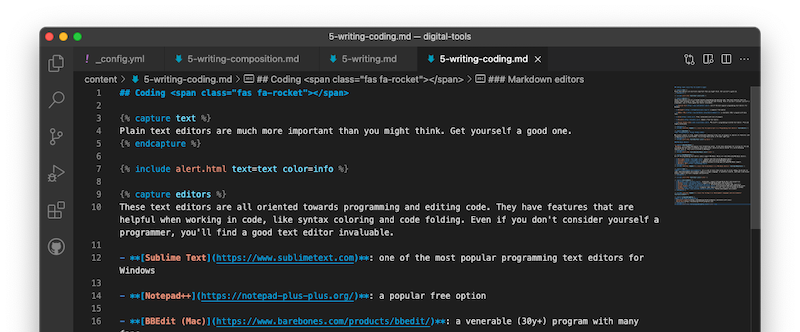Coding
It might be odd to think of coding as a type of writing or compostion, but that’s what it is!

A code-focused text editor is an important tool in your research toolbox, even if you don’t think of yourself as a coder. Get yourself a good one.
These text editors are all oriented towards programming and editing code. They have features that are helpful when working in code, like syntax coloring and code folding.
-
Sublime Text: one of the most popular programming text editors for Windows
-
Notepad++: a popular free option
-
BBEdit (Mac): a venerable (30y+) program with many fans.
-
Atom: Free, extensible with lots of plugins
-
Brackets: Adobe’s free text editor.
-
Visual Studio Code: Microsoft’s programming-oriented text editor. Free and highly extensible.
Our recommendation: Visual Studio Code
Microsoft’s editor is free, highly extensible (meaning it has lots of plugins to improve its features) and integrates directly with GitHub. I’m writing these words in VS Code right now!
What’s a development environment?: It’s a set of tools that allow you to write, debug, build and run code. Some development environments support a single language or platform (like R), and some (like Visual Studio) support multiple languages and platforms.
-
R: extensible, support through Hacky Hour and Carpentries
-
Python: support through Hacky Hour and Carpentries
-
GitLab: Griffith University shared code repository
-
Visual Studio: mulitiplatform IDE published by Microsoft
-
GitHub: a popular code repository site. This site is hosted on GitHub.
-
Anaconda: Python development environment
Ways to get programming help at Griffith: